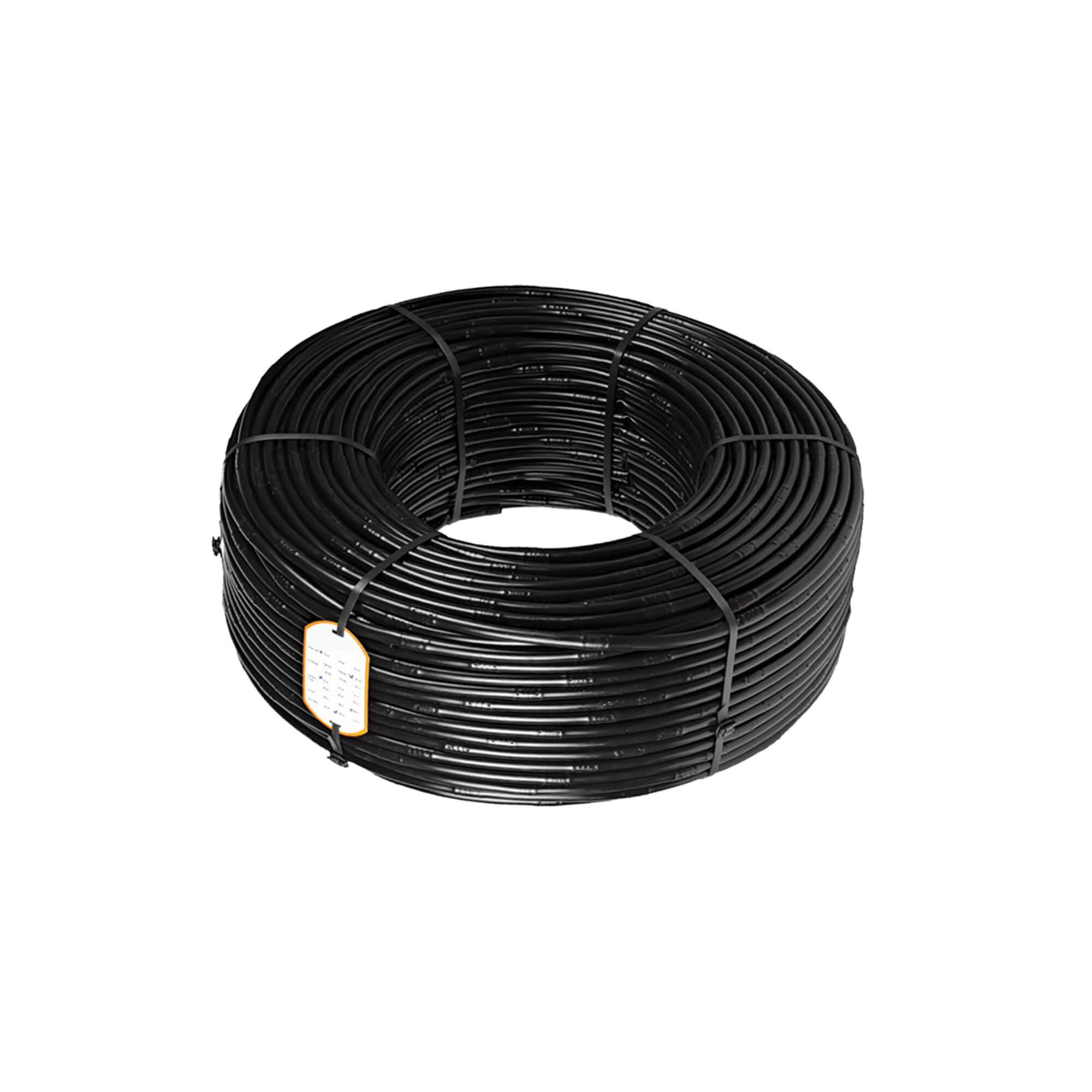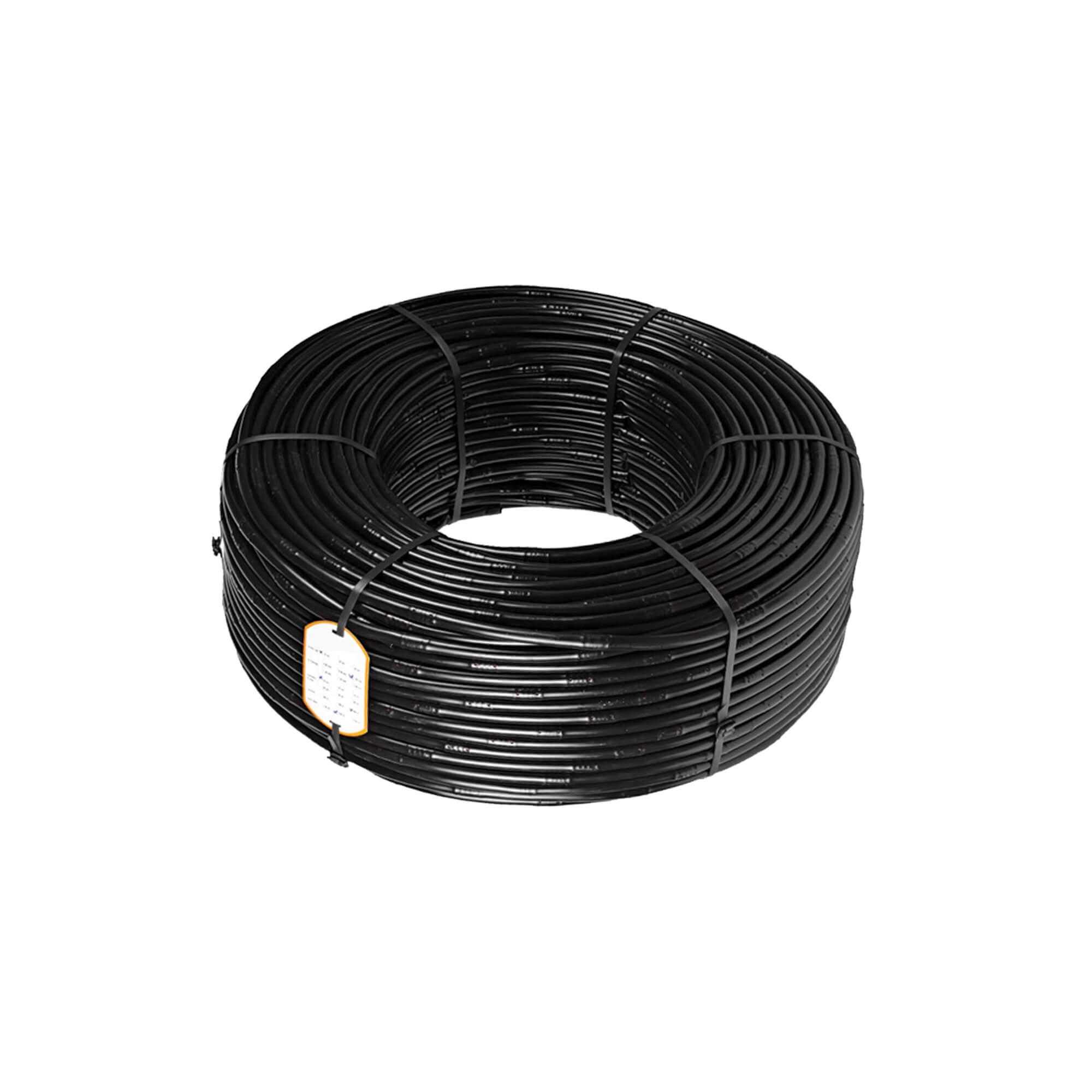Round Drip Irrigation Pipe
Drip irrigation systems are a frequently used method in modern agricultural practices. The basis of these systems is the delivery of water in the form of droplets. In this way, wastage of water is prevented, the water needs of plants are met correctly and productivity increases. Round pipes in drip irrigation are one of the most important parts of these systems.
Advantages
Round pipes for drip irrigation have many advantages. Here are some of them:
Saves water
The drip irrigation system ensures that water is delivered to the right places and in sufficient quantities. In this way, the water needs of the plants are met and water waste is prevented. Water saving is an important issue in agriculture and the drip irrigation system is very effective in this regard.
Plants' water needs are met in the right way
The drip irrigation system meets the water needs of plants in the right way. Water is delivered directly to the root zone of the plants in the form of drops. In this way, water is used more efficiently by the plants.
Prevents salt accumulation in the soil
The drip irrigation system prevents salt accumulation in the soil by delivering water directly to the plants. Normal irrigation methods can cause salt accumulation due to the delivery of water to the upper part of the soil. However, the drip irrigation system prevents salt accumulation in the soil by delivering water directly to the root zone.
Increases productivity
The drip irrigation system increases productivity as it meets the water needs of the plants in the right way. In addition, this system also meets the nutrient needs of the plants. Thus, plants become healthier and more productive.
Areas of Use
Round pipes for drip irrigation can be used for many different agricultural crops. These crops include the following:
Vegetables
Many types of vegetables such as tomatoes, peppers, eggplants, cucumbers, zucchini and artichokes can be irrigated with drip irrigation.
Fruits
Many types of fruits such as oranges, lemons, apples, pears, peaches, kiwis, bananas, strawberries, watermelons and melons can be irrigated with drip irrigation systems.
Hazelnut
Hazelnut trees can also be irrigated with drip irrigation.
Sugar beet
Sugar beet can be irrigated with drip irrigation.
Cotton
Cotton fields can also be irrigated with drip irrigation.
How to Choose
Some factors should be considered in the selection of round pipes for drip irrigation. These factors are as follows:
Plant type
For which plant species the drip irrigation system will be used, the pipe selection should be made accordingly. Different plant species require different amounts of water and therefore different pipe diameters can be used.
Soil properties
Soil properties are an important factor in pipe selection. Some soil types are more permeable and therefore lower diameter pipes can be used, while some soil types are less permeable and therefore higher diameter pipes can be used.
Water source
The water source to be used for the drip irrigation system is also an important factor in pipe selection. Pipe diameter and length are determined according to the water source.
System size
The drip irrigation system can be used in different sizes, from small gardens to large fields. Pipe diameter and length are determined according to the system size.
Difference with Straight Pipes
The biggest difference between round pipes and straight pipes is that they are more durable. Round pipes are also easier to install and take up less space. In addition, round pipes are also known to distribute water better. Straight pipes, on the other hand, are more affordable and have a simpler design. However, in the long run, round pipes are more preferable due to their durability and water-saving properties.
Round pipes in drip irrigation are an indispensable part of modern agricultural practices. The use of these pipes increases productivity and saves water. Therefore, by making the right choice, drip irrigation systems can be made more effective.
Round Drip Irrigation Pipe
Drip irrigation systems are a frequently used method in modern agricultural practices. The basis of these systems is the delivery of water in the form of droplets. In this way, wastage of water is prevented, the water needs of plants are met correctly and productivity increases. Round pipes in drip irrigation are one of the most important parts of these systems.
Advantages
Round pipes for drip irrigation have many advantages. Here are some of them:
Saves water
The drip irrigation system ensures that water is delivered to the right places and in sufficient quantities. In this way, the water needs of the plants are met and water waste is prevented. Water saving is an important issue in agriculture and the drip irrigation system is very effective in this regard.
Plants' water needs are met in the right way
The drip irrigation system meets the water needs of plants in the right way. Water is delivered directly to the root zone of the plants in the form of drops. In this way, water is used more efficiently by the plants.
Prevents salt accumulation in the soil
The drip irrigation system prevents salt accumulation in the soil by delivering water directly to the plants. Normal irrigation methods can cause salt accumulation due to the delivery of water to the upper part of the soil. However, the drip irrigation system prevents salt accumulation in the soil by delivering water directly to the root zone.
Increases productivity
The drip irrigation system increases productivity as it meets the water needs of the plants in the right way. In addition, this system also meets the nutrient needs of the plants. Thus, plants become healthier and more productive.
Areas of Use
Round pipes for drip irrigation can be used for many different agricultural crops. These crops include the following:
Vegetables
Many types of vegetables such as tomatoes, peppers, eggplants, cucumbers, zucchini and artichokes can be irrigated with drip irrigation.
Fruits
Many types of fruits such as oranges, lemons, apples, pears, peaches, kiwis, bananas, strawberries, watermelons and melons can be irrigated with drip irrigation systems.
Hazelnut
Hazelnut trees can also be irrigated with drip irrigation.
Sugar beet
Sugar beet can be irrigated with drip irrigation.
Cotton
Cotton fields can also be irrigated with drip irrigation.
How to Choose
Some factors should be considered in the selection of round pipes for drip irrigation. These factors are as follows:
Plant type
For which plant species the drip irrigation system will be used, the pipe selection should be made accordingly. Different plant species require different amounts of water and therefore different pipe diameters can be used.
Soil properties
Soil properties are an important factor in pipe selection. Some soil types are more permeable and therefore lower diameter pipes can be used, while some soil types are less permeable and therefore higher diameter pipes can be used.
Water source
The water source to be used for the drip irrigation system is also an important factor in pipe selection. Pipe diameter and length are determined according to the water source.
System size
The drip irrigation system can be used in different sizes, from small gardens to large fields. Pipe diameter and length are determined according to the system size.
Difference with Straight Pipes
The biggest difference between round pipes and straight pipes is that they are more durable. Round pipes are also easier to install and take up less space. In addition, round pipes are also known to distribute water better. Straight pipes, on the other hand, are more affordable and have a simpler design. However, in the long run, round pipes are more preferable due to their durability and water-saving properties.
Round pipes in drip irrigation are an indispensable part of modern agricultural practices. The use of these pipes increases productivity and saves water. Therefore, by making the right choice, drip irrigation systems can be made more effective.




